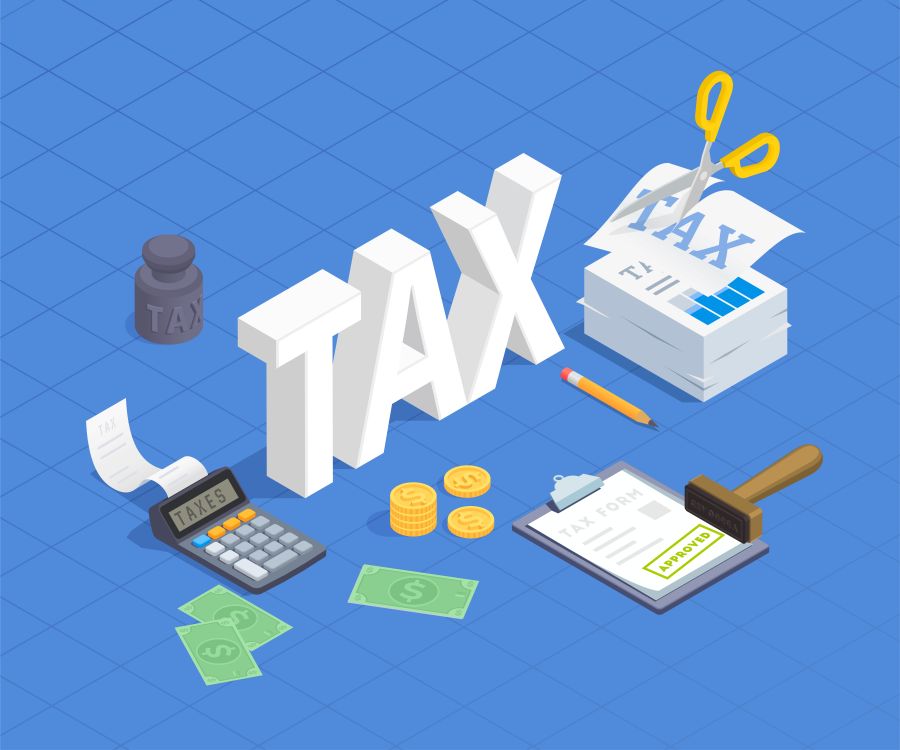
Running a Limited Company in the UK comes with many responsibilities, and one of the most important is paying Corporation Tax. Understanding how it works, the rates that apply, and the reliefs available can save your company money, reduce stress, and help you plan more effectively. This guide consolidates expert advice into a single resource designed to help business owners navigate Corporation Tax with confidence.
What is Corporation Tax?
Corporation Tax is the tax a Limited Company pays on its profits. This includes profits from trading, investments, and gains from selling assets such as property or shares. Unlike personal income tax, there is no personal allowance for companies – all profits are taxable.
Every Limited Company must calculate its Corporation Tax, report it to HMRC, and pay it by the required deadline, which is usually nine months and one day after the end of the accounting period. Failure to do so can lead to interest charges and penalties, so accurate record-keeping and early planning are essential.
Corporation Tax rates for 2025/26
Corporation Tax rates vary depending on your company’s level of profits:
- Small profits (up to £50,000): 19%
- Main profits (over £250,000): 25%
- Profits between £50,001 and £250,000: subject to marginal relief, which gradually increases the effective tax rate from 19% to 25%
Marginal relief prevents companies with profits slightly above £50,000 from being taxed at the full main rate immediately. The calculation considers any associated companies, which divide the thresholds between them. This ensures a smoother increase in tax liability as profits grow.
For example, if your Limited Company has profits of £100,000, you would not pay 25% on all of it. Instead, marginal relief applies, so the effective tax rate would fall somewhere between 19% and 25%, depending on the exact figures.
Registering for Corporation Tax
All Limited Companies must register for Corporation Tax within three months of starting business activities. The process is straightforward but must be completed promptly to avoid penalties:
- Register your company with Companies House.
- Receive your unique taxpayer reference (UTR) from HMRC.
- Register online for Corporation Tax using your UTR.
Once registered, HMRC will provide guidance on your payment and filing obligations. Early registration also allows you to plan ahead and avoid last-minute issues when deadlines approach.
Benefits of paying Corporation Tax early
Paying Corporation Tax before the due date can offer tangible benefits for your business. Timely payments reduce the risk of late payment penalties and interest charges. Early payments also support cash flow management by giving your company a clear picture of its finances.
In some cases, paying early may reduce interest on overdue amounts if HMRC is satisfied with your promptness. Early payments signal good financial management and make it easier to plan for future expenses and investments.
Late payment penalties and interest
Failing to pay Corporation Tax on time can have serious consequences. HMRC charges interest on overdue amounts, and penalties can accumulate if payment is delayed further.
Interest is calculated from the day after the payment due date until the amount is paid in full. Late payment penalties are usually applied as a percentage of the tax owed and can increase the longer the debt remains unpaid.
Proactive planning, accurate record-keeping, and early payments can help you avoid these additional costs, keeping your company’s finances on track.
How to reduce your Corporation Tax bill
There are several legitimate ways to reduce your Corporation Tax liability:
- Claim all allowable business expenses, including office equipment, travel, utilities, and insurance.
- Use a tax-efficient mix of salary and dividends. Paying yourself a combination of salary and dividends can be more tax-efficient than salary alone.
- Make pension contributions, which are deductible as employer contributions.
- Take advantage of research and development tax credits if your business is eligible.
- Invest in assets with capital allowances, such as machinery or equipment, which can be offset against profits.
Planning ahead and using accounting software or professional advice can help you identify all opportunities to reduce your tax liability legally.
Using losses to reduce your tax liability
If your Limited Company makes a loss, you may be able to carry that loss back to offset profits from previous years. This is known as loss carry-back, and it can generate a tax refund and improve cash flow.
For example, if your company made a profit of £80,000 in the previous year but then made a loss of £20,000 this year, you could potentially claim relief to reduce the tax paid on last year’s profits. The rules can be complex, so it is advisable to consult a professional to ensure you maximise any available relief.
Understanding marginal relief
Marginal relief applies to companies with profits between £50,001 and £250,000. It gradually increases the effective tax rate from the small profits rate to the main rate of 25%. Without marginal relief, companies with profits slightly above £50,000 would face a sudden jump to the main rate, which could be a significant financial burden.
By smoothing the increase in tax rates, marginal relief allows growing Limited Companies to manage their obligations more easily and plan growth without being penalised for modest profit increases.
Key deadlines to remember
Corporation Tax has strict deadlines that must be observed to avoid penalties:
- Payment deadline: nine months and one day after the end of the accounting period.
- Filing deadline: twelve months after the end of the accounting period.
Mark these dates in your calendar and set reminders to ensure your Limited Company remains compliant. Missing deadlines can lead to interest charges and late filing penalties, which are often avoidable with careful planning.
Frequently asked questions
Do I have to pay Corporation Tax if my company is not making a profit?
No. Corporation Tax is only charged on profits. If your Limited Company is making a loss, you may be able to use loss carry-back to reclaim tax from previous years.
What happens if I miss a Corporation Tax deadline?
HMRC charges interest and penalties on late payments. The longer the delay, the higher the potential cost.
Can I reduce my Corporation Tax by paying myself a higher salary?
Higher salaries can reduce profits and therefore Corporation Tax, but this needs to be balanced with personal tax obligations. A mix of salary and dividends is often more tax-efficient.
What is marginal relief and who qualifies for it?
Marginal relief applies to companies with profits between £50,001 and £250,000. It smooths the tax rate increase between the small profits rate and the main rate to prevent a sudden jump in liability.
Key takeaways
Corporation Tax is a central aspect of running a Limited Company in the UK. By understanding the rates, reliefs, and deadlines:
- You can remain compliant and avoid penalties.
- You can reduce your tax liability through allowable deductions and reliefs.
- You can plan cash flow and business growth more effectively.
- Professional guidance or accounting software can make the process easier and more efficient.
Taking a proactive approach allows your Limited Company to manage Corporation Tax confidently and make better financial decisions.

.svg)



.jpg)
